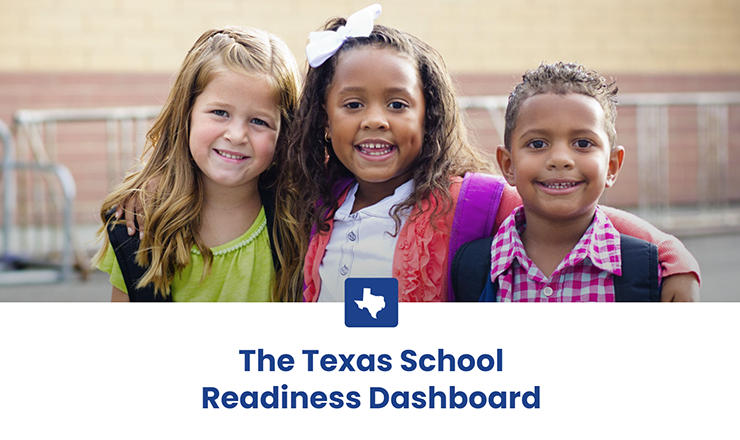What a year for prenatal-to-3 state policy! In 2023, states across the country made substantial investments in policies to support young children and their families. In today’s post, we provide a snapshot of states’ progress toward adopting and implementing evidence-based policies and programs to support early childhood.
Medicaid Expansion
Federal law offers states an option to expand Medicaid eligibility to include most adults with incomes at or below 138% of the federal poverty level, and the vast majority of states have chosen this option. In 2023, two more states expanded Medicaid:
- South Dakota voters approved a ballot initiative to expand Medicaid in 2022, and coverage became effective on July 1, 2023.
- North Carolina expanded Medicaid eligibility earlier this year and will implement the expansion in December 2023.
Studies show that Medicaid expansion offers a wide variety of benefits—from increasing the probability of timely and adequate prenatal care to bolstering families’ economic security through reduced medical spending and debt. Medicaid expansion even reduces rates of child neglect.
In addition to a full Medicaid expansion, states have other options for improving health care access during the prenatal-to-3 period. Medicaid coverage for pregnant people typically only lasts for 60 days after giving birth. In 2023, 16 states extended postpartum coverage to 12 months through state plans, Section 1115 waivers from CMS, or legislation.

Because Medicaid income eligibility varies widely across states, many individuals lack coverage.
Paid Family Leave Programs
In 2023, three states either enacted or implemented a new statewide paid family leave (PFL) program:
- Oregon implemented their 12-week PFL program in September 2023.
- Maine and Minnesota both enacted a 12-week program this year, with full implementation slated for 2026.
Additionally, Rhode Island increased the duration of leave in their statewide program from 5 to 6 weeks, as of January 2023.
Research shows that PFL policies offering a minimum of 6 weeks of leave reduce postneonatal infant mortality, improve parents’ mental health, and foster better child-mother relationships and child health. Did you know these programs also increase mothers’ labor force participation?

Find out why we focus on 6 weeks of PFL instead of 12 (for now at least).
Minimum Wage
Minimum wages are on the rise in many states:
- Michigan, Nebraska, Ohio, and South Dakota saw their minimum wage rise to greater than $10.00 per hour this year.
- New York enacted legislation to gradually increase its minimum wage to $16.00 per hour in 2026.
- Maryland took action this year to accelerate how quickly its minimum wage will reach $15.00 per hour.
Strong causal studies tell us that increasing the minimum wage to $10.00 or greater reduces child poverty, particularly in families of color. Reaching that threshold also improves birth outcomes and children’s health and development—with minimal negative impacts on employment.

By the way, $10.00 per hour is a floor, not a ceiling. Find out why!
Tax Credits
The federal earned income tax credit (EITC) is a refundable tax credit for low-income workers, and the partially refundable federal child tax credit helps families with low incomes alleviate the cost of raising children. In addition to the federal credits, several states offer their own version of one or both of these tax credits.
In 2023, tax credits saw bipartisan support and legislative success across several states:
- Michigan expanded its refundable EITC from 6% to 30%, effective this tax year.
- Montana expanded its refundable EITC from 3% to 10%, effective next tax year.
- Colorado, Connecticut, Hawaii, Maryland, Massachusetts, and Utah also increased the generosity of their EITCs this tax year.
- Colorado, Maine, Maryland, Minnesota, New Mexico, New Jersey, New York, Oregon, and Utah newly created or expanded the generosity of their child tax credits.
Additional research would allow us to evaluate the effectiveness of state child tax credits, but the benefits of state EITCs are well-established. A refundable state EITC of at least 10% of the federal credit promotes healthier and more equitable birth outcomes, increases parents’ workforce participation, and improves household economic security, with the greatest effects for single mothers and their children.

Research points to the state EITC as the most effective anti-poverty policy for children in the US.
Evidence-Based Prenatal-to-3 Programs
In general, increasing funding for a program increases the number of families that program can serve. This year, several states enhanced funding for evidence-based prenatal-to-3 programs. For example:
- Arkansas and New Jersey increased support for HealthySteps, an evidence-based comprehensive screening and connection program model that provides early childhood development support within the pediatric primary care setting.
- Michigan allocated $5 million for the expansion of CenteringPregnancy, a group prenatal care model.
- North Carolina is developing an enhanced Medicaid reimbursement for CenteringPregnancy.
Comprehensive screening and connection programs connect families to community resources, improve maternal mental health, and may improve optimal child health and development outcomes such as vaccination rates and emergency department visits.

What are comprehensive screening and connection programs, and why are they important?
Participation in group prenatal care improves the likelihood that mothers receive adequate prenatal care, which refers to both amount and timeliness of care. Studies also show an association with benefits for mental health and breastfeeding.
Community-Based Doulas
Community-based doulas are trained social service professionals who provide non-clinical emotional, physical, and informational support to birthing people throughout the perinatal period. Evidence shows that community-based doulas are a critical part of a comprehensive system of care to improve our nation’s maternal health crisis. So much so that we added community-based doulas as a new 12th effective policy to the Roadmap!
In 2023, several states adjusted Medicaid reimbursement rates for doula services, increased financial support for doula training, required private coverage, established advisory boards, and more. The Roadmap provides this overview of current state doula policy:
- 12 states actively cover and reimburse community-based doula services under Medicaid.
- 8 states fund grants or scholarships to support doula training and credentialing.
- 4 states (California, Nevada, New Jersey, and Oregon) have implemented both of these key policy levers!
Strong causal evidence of community-based doula programs shows they increase attendance at medical appointments and education classes, encourage responsive parenting behaviors, and enhance child health and developmental outcomes such as breastfeeding initiation and safe sleep practices. Additionally, evidence shows that participation reduces negative birth outcomes—including preterm birth, low birthweight, and neonatal intensive care unit visits.
Child Care Subsidies
Many states have used temporary pandemic funds to improve families’ access to affordable, high-quality child care. But as federal funds continue to expire, we are seeing significant state action to stabilize the market and support families:
- 24 states increased funding for child care subsidies.
- 5 states reduced family copayments.
- 15 states and the District of Columbia expanded the income eligibility threshold for child care subsidies.
- 25 states increased base reimbursement rates for infants in center-based care.
- 3 states made significant changes to their subsidy programs by improving access and affordability and increasing provider reimbursements.
Research links subsidy receipt and higher state subsidy expenditures to improvements in access to needed services, the ability of parents to work, and increased earnings, thereby promoting sufficient household resources.
All this info plus so much more is in our 2023 Roadmap! We didn’t have the space today to talk about policy progress in Early Head Start, early interventions, or home visiting. Check out the Roadmap!






